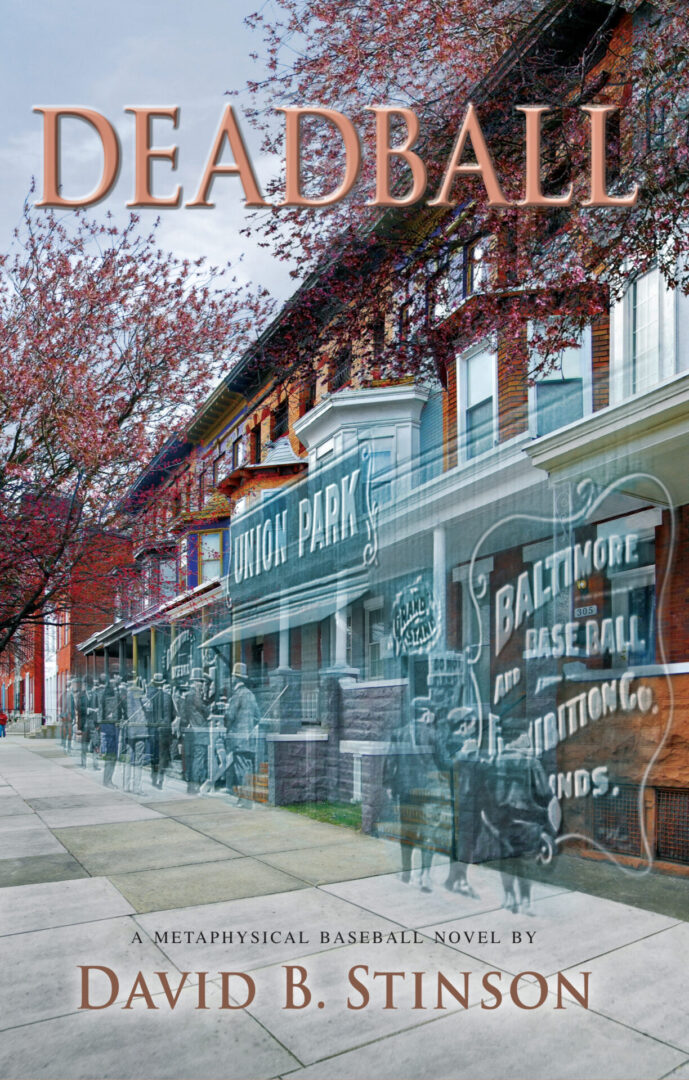Greenlee Field was located at the intersection of Bedford Avenue and Junilla Street in the Hill District of Pittsburgh, Pennsylvania. From 1932 until 1938 it was the home of the Pittsburgh Crawfords of the Negro National League (the Crawfords joined the NNL in 1933).
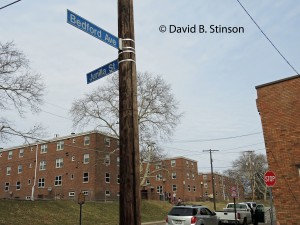
Greenlee Field is important not just because it was the home field of arguably the greatest Negro League team of all time – the 1935 Pittsburgh Crawfords – but because it was the first major league ballpark owned and operated by an African American. Gus Greenlee, the owner of the Crawfords, began construction of Greenlee Field in 1931, the same year he bought the team. Greenlee, a WWI veteran, wore many hats. In addition to owning the Crawfords, he was a boxing promoter, nightclub owner (the Crawford Grill), and a pioneer in Pittsburgh’s numbers racket (an illegal lottery).
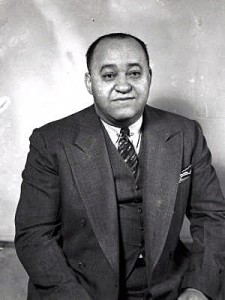
Crawford Grill No. 1, which Greenlee opened in 1930, was located at the intersection of Crawford Street and Wylie Avenue at 1401 Wylie Avenue. Crawford Grill No. 1 was destroyed by fire in 1951 and subsequently demolished to make way for the Civic Arena parking lot. Crawford Street was an important part of the Hill District and provided the inspiration for the team’s name, the Pittsburgh Crawfords. At the intersection of Crawford Street and Wylie Avenue also stood the Pittsburgh Bath House and Recreation Center, which was the original sponsor of the then semi-professional Pittsburgh Crawfords.
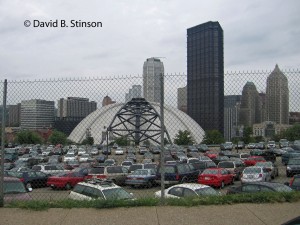
The building in which Greenlee opened Crawford Grill No. 2, beginning in 1943, still stands in Pittsburgh’s Hill District at the intersection of Wylie Avenue and Elmore Street, just a half mile southwest of the Greenlee Field site.
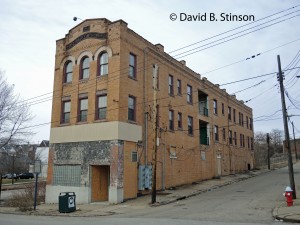
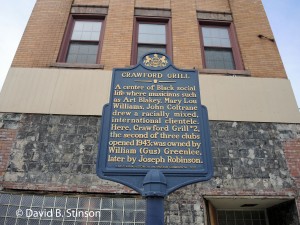
In 1933, Greenlee founded the Negro National League and was instrumental in establishing the East-West Classic, an annual Negro League all-star game played in Chicago. During his tenure as owner of the Crawfords, which ceased after the 1938 season, Greenlee stocked his team with many future Hall of Fame players including Satchel Paige, Josh Gibson, Oscar Charlestown, Judy Johnson and James T. “Cool Papa” Bell. The 1935 Crawfords, which included the above Hall of Famers, except Paige, is considered by many to be the greatest Negro League team ever to play the game.
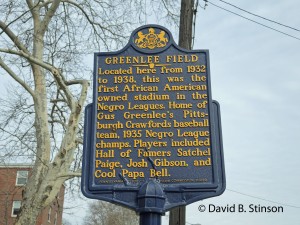
Greenlee Field’s home plate, and the entrance to its grandstand, was located near the intersection Bedford Avenue and Junilla Street.
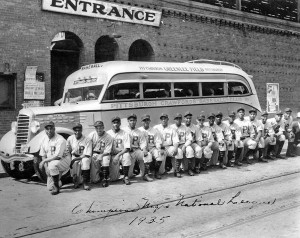
After the 1938 season, Greenlee Field was demolished. Several images of the ballpark in its hey day can be viewed on line by searching “Greenlee Field” in the Teenie Harris Archives, Carnegie Museum of Art (Charles “Teenie” Harris was one of the founders of the semi-pro Pittsburgh Crawfords in 1926). Soon after demolition of Greenlee Field, the City of Pittsburgh began construction of the Bedford Dwellings housing project, which remains today at the ballpark’s former site.
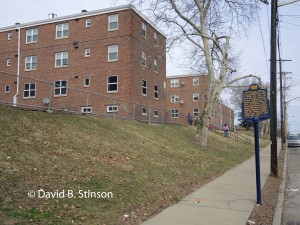
Greenlee Field’s left field corner was located at what is now the intersection of Bedford Avenue and Barnett Way. At the time of Greenlee Field, Watt Street intersected Bedford Avenue where what is now Barnett Way.
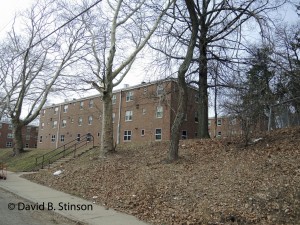
Because Greenlee Field was built on a hill, the playing field was located several feet above street grade.
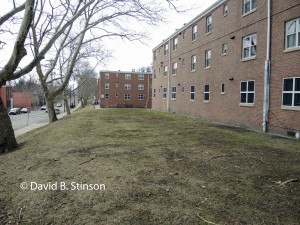
Just to the east of Watt Street (which no longer runs through the site) was the Pittsburgh Municipal Hospital, which can be seen in some of the photos of Greenlee Field available in the Teenie Harris Archives.
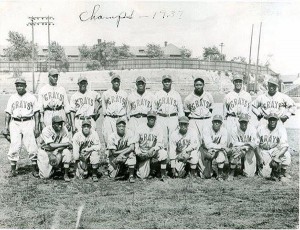
A park known as “The Garden of Hope” now sits at the former site of the hospital.
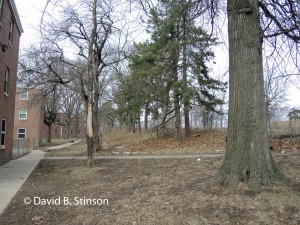
Greenlee Field’s former infield site is accessible from Chauncey Drive.
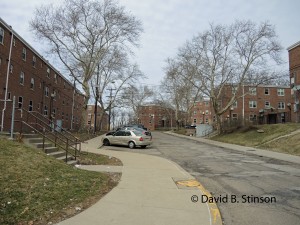
Where Chauncey Drive makes a 45 degree turn is the approximate location of second base.
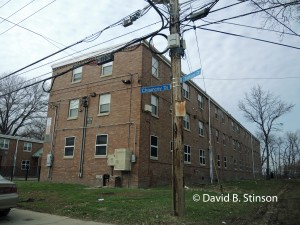
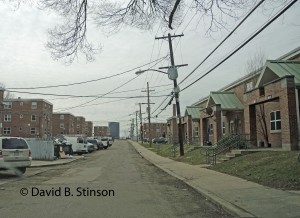
Some buildings located along Bedford Avenue date back to Greenlee Field. Three row houses at the intersection of Junilla Street and Bedford Avenue are located across the street from what would have been the home plate grandstand.
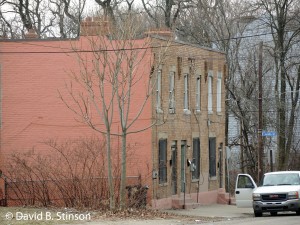
Three townhouses located 2520-24 Bedford Avenue are located across the street from what was once left field.
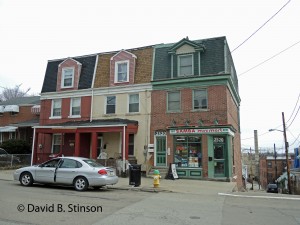
The townhouse on the corner of Bedford Avenue and Watt Street (Watt Street was relocated after demolition of Greenlee Field) is now a market. With a little imagination, it is not hard to picture what Greenlee Field might have looked like standing at the entrance to that market.
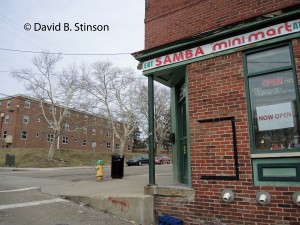
Just three blocks west of the former site of Greenlee Field, at the northwest corner of Somers Street and Bedford Avenue, was another Negro League ballpark, Ammons Field. The semi-pro Pittsburgh Crawfords played at this field, beginning in about 1926, as did the professional level Pittsburgh Crawfords and Homestead Grays beginning in 1930. Ammons Field also is notable as the field where Josh Gibson first played baseball for the semi-pro Crawfords in 1928. For more information about Ammons Field and the history of the Crawfords, see James Bankes’ fine book The Pittsburgh Crawfords.
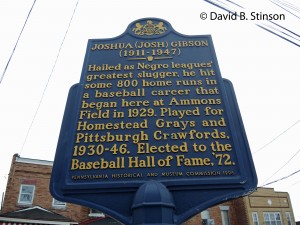
The City of Pittsburgh has paid tribute to Ammons Field and Josh Gibson with a historical marker. Located behind the Ammons Recreation Center at Bedford Avenue and Kirkpatrick Street is a youth baseball field dedicated to Josh Gibson.
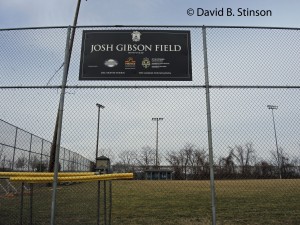
As noted in the informative website Agatetype.typepad.com, the actual location of the original Ammons Field utilized by the Crawfords was one block east of Josh Gibson Field, the current park. The former location of the modest grandstand and home plate is visible on the bluff beyond Josh Gibson Field’s left field fence.
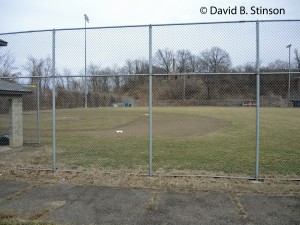
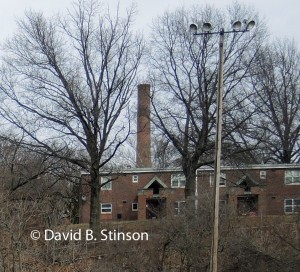
Pittsburgh’s Hill District, and the former site of Greenlee Field, is located just two miles west of the former site of Forbes Field, and one and a half miles southwest of the former sites of Three Rivers Stadium and Exposition Park, as well as the Pirates current ballpark, PNC Park. If you are a fan of the game and the history of the game, and you find yourself in Pittsburgh on a baseball trip, a stop at the former site of Greenlee Field and Ammons Field, is a must.
